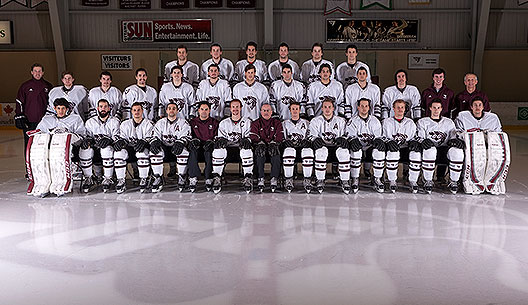Representatives from SFUO, GSAÉD, OPIRG, and employee unions present
On March 20, various on-campus unions gathered at Café Nostalgica to host a public town hall meeting on the recent education policy changes put forward by the provincial government.
Over the course of the meeting, representatives from the unions including the Student Federation of the University of Ottawa (SFUO) and the Graduate Students’ Association (GSAED) laid out concerns that they have about the Ford government’s changes in funding for OSAP and student organizations. The University of Ottawa Students’ Union (UOSU) was not present.
But the event also highlighted a significant new worry: whether students will find the voice to speak against the province’s changes.
Student turnout was minimal, despite the promise of free pizza and desserts. Just outside the Café doors, police officers and automobile parts lined the street in the aftermath of the dangerous driving incident on campus just a couple hours earlier.
Earlier this year, the Ford government reduced tuition rates by 10 per cent, but also reduced the amount of province-provided grants in favour of more loans. Representatives on the town hall panel argued that this was not as beneficial to students as the government claimed.
The changes regarding loans were like “a hidden dagger,” said Christian Goulet, a liaison for CUPE 2626, which represents the U of O’s teaching and research assistants.
“I had a lot of friends that (the tuition decrease) was what they were excited about … 10 per cent still is a lot of money for students,” Goulet said. “But they’re not necessarily aware of all the strings that are attached to that decrease in tuition.”
Many members of the panel pointed out that the province will not be compensating universities for that lost 10ten per cent; in effect, the rebate for students could mean a smaller budget for universities.
Susan Spronk, president of the Association of Professors of the University of Ottawa, told the town hall that she worried that the dent in funds could lead to more privatization in university financing.
“What is going to happen in this province under Ford?” asked Spronk, who sat on the panel that evening. “(These changes are) not benefiting anyone except Ford and his cronies … this is a corporate coup. And we’re going to have to fight back,” she added.
The panelists also spoke on the Student Choice Initiative (SCI), which will withdraw mandatory funding for student groups that are deemed “non-essential.”Paige Booth, acting president of the expiring SFUO, and Maïté Girard English, external commissioner of the GSAED, both said this measure could harm the work their organizations do on campus.
At one point, Booth said that the provincial government had been “lazy” in its consulting for the SCI. “The only people that the provincial government is taking meetings with and listening to are the people who are saying the things that they want to hear,” she said, appearing to reference a meeting between the Ford government and the uOttawa Students for Free Speech Club.
Spronk argued that the SCI could even be threatening to larger student organizations like the Canadian Federation of Students (CFS), which lobby on the federal and provincial level. “This is going to have a long-term devastating effect on the student movement in this country,” she said.
After the panel portion of the evening was complete, the floor opened to audience questions. By this point, many attendees had left, but the remaining questioners demanded answers around the lack of communication around the implementation of SCI and the seemingly uncoordinated response by student governance.
At several points in the discussion, panelists made references to the 2012 student strike in Quebec, when hundreds of thousands of students protested hikes to tuition fees. The panelists wondered whether something similar could be on the horizon in Ontario.
Speaking a couple of days after the event, however, Girard English seemed unsure of whether such a large movement would occur in this province. “In Quebec, it took a long time, it didn’t happen the day after,” she said. “So if this is something that could happen, that would actually help a lot. But that’s a lot of preparation, that’s a lot of hard work, and I am not sure if Ontario students are ready for a general strike.”








